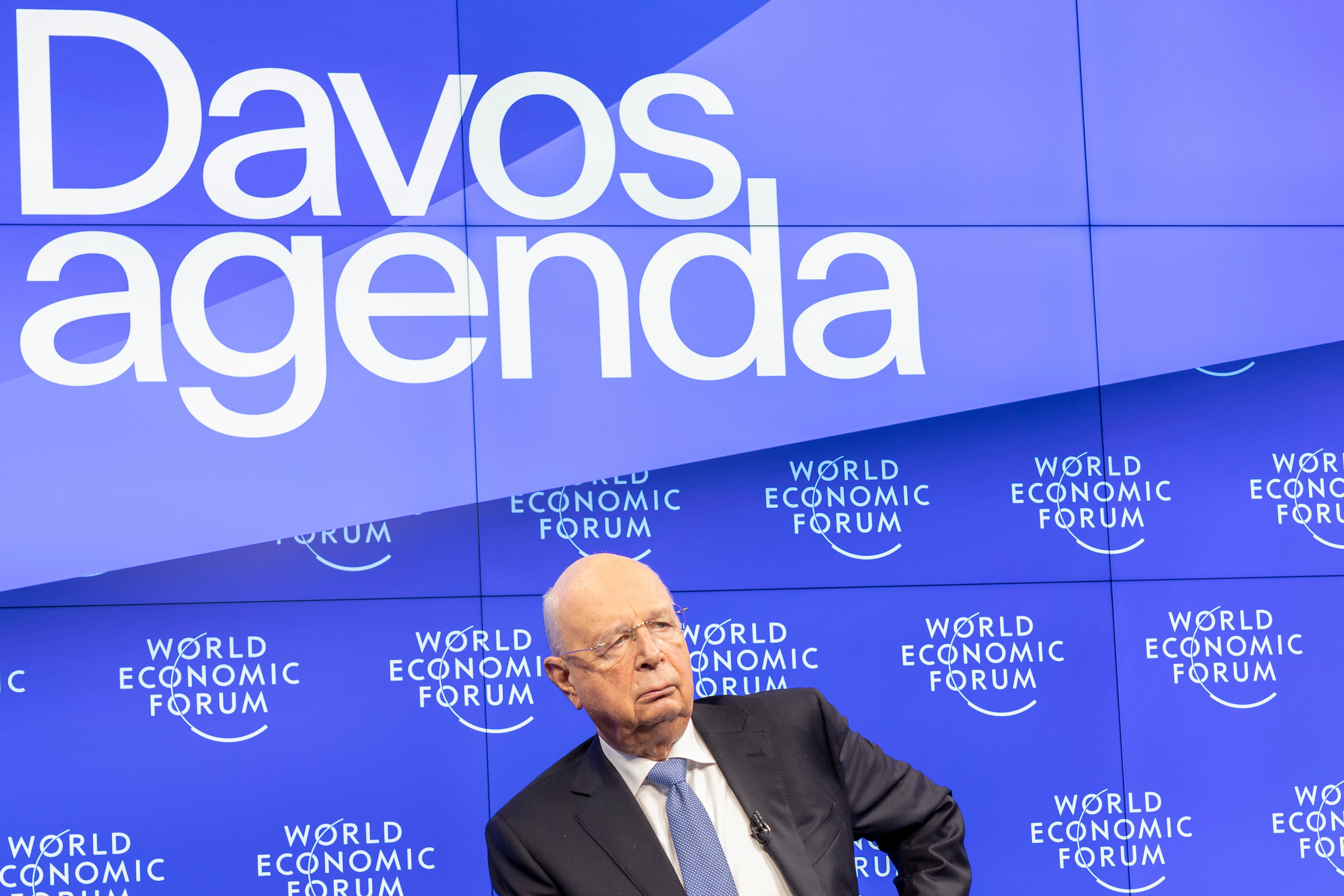Climate, COVID, China: Takeaways from online Davos event
Government and business leaders have urged global cooperation on climate change, the coronavirus pandemic and the economic recovery at the World Economic Forum’s virtual gathering this week

Government and business leaders have urged cooperation on the world's biggest issues — climate change, the coronavirus pandemic and the economic recovery — at the World Economic Forum s virtual gathering.
Speeches and discussions from the likes of Chinese President Xi Jinping and U.N. Secretary-General Antonio Guterres moved online this week after COVID-19 concerns delayed the forum's annual meeting in Davos, Switzerland. Critics regularly fault the Davos event for hosting elites touting high-minded but often empty goals deemed out of touch with regular people.
As usual, big ideas were debated, but no concrete deals emerged. The forum announced Friday that it plans to hold its in-person gathering May 22-26 after two years of delays.
Here are some takeaways from the online event:
CLIMATE CHANGE
German Chancellor Olaf Scholz vowed to use his country's Group of Seven presidency to have industrial nations lead a “paradigm shift in international climate policy."
The new head of Europe's biggest economy said Wednesday that the “climate club” would agree on “joint minimum standards." Its goals are already part of the Paris climate accord, including limiting global warming to 1.5 degrees Celsius (2.7 Fahrenheit) above pre-industrial levels.
Scholz said the club could seek to achieve those goals “by pricing carbon and preventing carbon leakage” — designed to stop companies from shifting carbon-heavy industries to countries with looser emissions rules.
Others urged help for developing nations. Guterres called for debt relief to wean them off coal, and Latin American leaders said funding for green agendas is critical.
With Africa “the most negatively affected” by climate change though the continent contributes “the least” to it, Nigerian Vice President Yemi Osinbajo asked Friday for developed nations to remain committed to their pledge of providing $100 billion annually to support climate efforts in developing countries.
Meanwhile, a panel with U.S. climate envoy John Kerry and billionaire Bill Gates touted that innovations not invented or used widely yet would help slash emissions. That idea is popular in some circles but also divisive because technologies like carbon capture are expensive and energy intensive.
COVID-19 PANDEMIC
Global efforts to combat inequalities in the health crisis was a through line.
The World Health Organization's head of emergencies said quickly addressing huge inequities in vaccinations and medicines could mean the worst of the pandemic — deaths, hospitalizations and lockdowns — ends soon.
Dr. Michael Ryan said the virus may never be over, but “we have a chance to end the public health emergency this year if we do the things that we’ve been talking about."
WHO has called the COVID-19 vaccination imbalance between rich and poor countries a catastrophic moral failure. Just over 10% of Africa’s population is fully vaccinated.
Limited resources would mean the full rollout of vaccines “may take several years,” Nigeria’s vice president said Friday, and support is needed for donations and local production of doses.
China s president announced plans Monday to send an additional 1 billion doses of COVID-19 vaccine to other countries, including a donation of 600 million doses to Africa.
In another panel, Moderna CEO Stephane Bancel said the vaccine maker was working on a single-shot booster for both COVID-19 and the flu, saying it could be ready in some countries next year.
THE GLOBAL ECONOMY
Top economic issues were rising consumer prices and likely interest rate hikes by the U.S. Federal Reserve this year, which would have ripple effects worldwide due to the role played by the U.S. dollar.
Many of the poorest countries face debt trouble as their economic recovery lags that of the developed world, International Monetary Fund Managing Director Kristalina Georgieva warned in a panel discussion Friday. The Fed’s moves could strengthen the dollar, making debts bigger in local currencies.
European Central Bank President Christine Lagarde said the 19 countries using the euro were at a different stage of recovery than the U.S. and suggested temporary factors like high energy costs may be fueling inflation in Europe.
She said the bank was “trying to figure out how long it will last” and that it would act to counter high inflation, including through interest rate hikes, once certain “criteria are satisfied."
The bank plans to phase out its efforts to boost the pandemic-hit economy in March. Compared with the U.S., Europe lacks “excessive demand” following major lockdowns that would push up prices longer term, she said.
CHINA'S TALKING POINTS
While urging the world to share vaccines, fight climate change and promote development, Xi also took a veiled swipe at the United States in a recorded speech.
“We need to discard Cold War mentality and seek peaceful coexistence and win-win outcomes,” Xi said through a translator. “Protectionism and unilateralism can protect no one. ... Even worse are the practices of hegemony and bullying, which run counter to the tide of history.”
Those are terms Beijing has used to describe U.S. policy and actions amid tensions over Taiwan, human rights and other issues. Xi touched on standard themes, including responding to trading partners’ complaints by promising to open China’s state-dominated economy wider to private and foreign competition.
He also said China “stands ready to work with” other countries on climate change but announced no new initiatives and offered no resources. He said it was up to developed countries to provide money and technology.